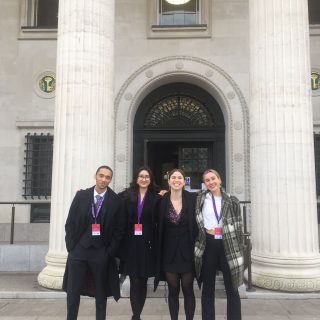The City University Team, comprised of Lucy Stock, Ella Sharrock-Higgs, Prune Recoules and Andre Barrette-Moore, qualified for the Regional Finals of the Helga Pedersen Mock Court Competition 2022-23. This round of the competition was held in Birmingham in mid-February 2023. Here, Lucy outlines the team’s journey to the regionals and their experience at the event…
In the commotion of the first two weeks of the GDL course we were bombarded with information covering everything from registering for our course cards to pro bono opportunities. Yet there was one email which stood out in particular: the Helga Pedersen Mock Court Competition (HPMCC) 2022-23. This moot simulates the procedures of complaints to the European Court of Human Rights. The competition is named after Helga Pedersen, a Danish judge who was appointed the first female judge at the European Court of Human Rights. Her accolades include being a Commander of the 1st Degree and a recipient of a gold medal from the Association of World Peace Through Law, becoming the first female commander of the Order of the Dannebrog. The competition consists of three stages: first, an initial written submissions round, followed by oral submissions in the Regional Rounds and finally an oral round held in Strasbourg.
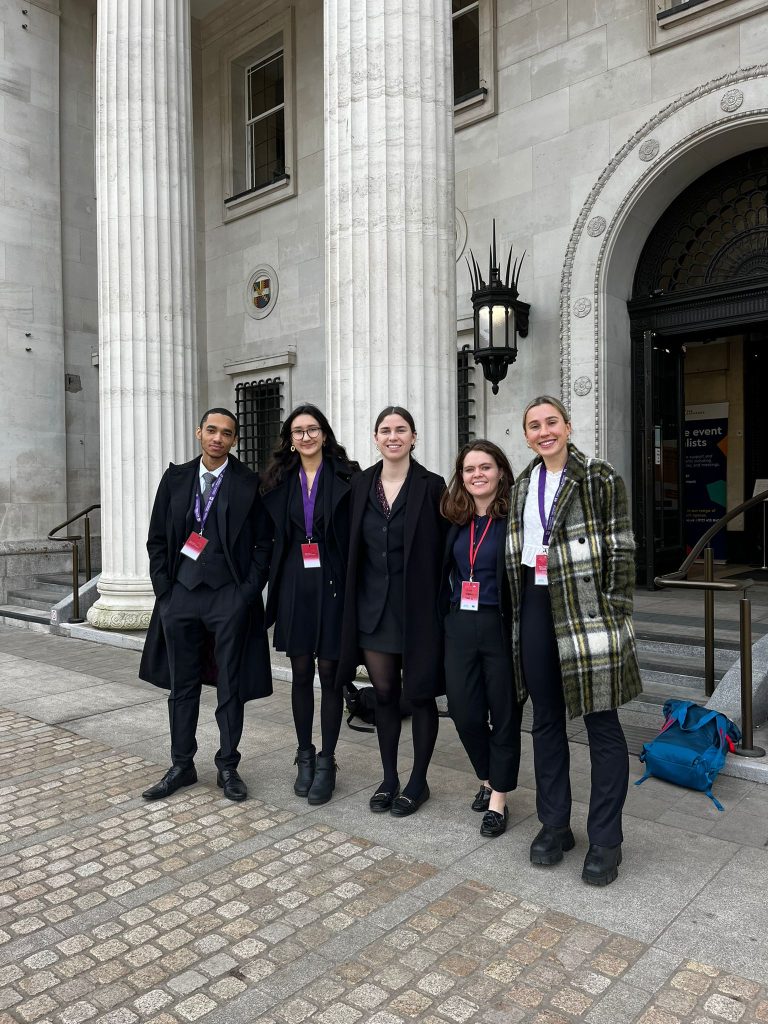
The focus on the European Convention of Human Rights immediately appealed to me. The moot problem involved complex issues including the principle of subsidiarity, proportionality of state interference with citizens’ rights and cutting- edge international law pertaining to IVF and surrogacy. I quickly cobbled together all the resources I could find on surrogacy and ECHR law to produce a single A4 page outline of the Appellant’s submissions and submitted my application to Emily Allbon (Director of Mooting at City). She would decide who was to represent City in the competition.
Two weeks later the four of us were meeting in the Law School for the first time as a team. We were confronted with the rather daunting task of producing a twenty-five-page submission on behalf of both the Respondent and the Applicant positions. We split ourselves into teams of two, each pair tackling one side of the argument, and began to construct our submissions.
The problem for the 11th Edition of the HPMCC revolved around a surrogacy agreement between a same-sex couple and a non-biological surrogate mother in the fictional state of Zephyria. The issues raised included the proportionality of state interference with an Applicant’s Article 8 rights to family and private life. We also tackled the question of admissibility, and the provision of an effective remedy by the state as required under Article 13. Finally, we dealt with the alleged violation of the Applicant’s Article 1 Protocol 12 rights which arose from domestic law governing adoption. We compiled case law, studied secondary literature, and consumed copious amounts of coffee in our efforts to build and polish our written arguments.
With the deadline looming on 16th December, we spent every available moment combing through our submissions, double checking references and proofing each other’s work. Our google-docs transformed from a chaotic cumulation of drafts and ‘rough ideas’ to a cohesive and in-depth study of ECHR case law and its application to Zephyrian domestic law. At 11.30pm, after a last-minute formatting crisis and with 30 minutes to spare, I submitted the final team drafts. It is safe to say we were all looking forward to a well-needed Christmas break and some time away from our laptops, google drive and the ECHR database.
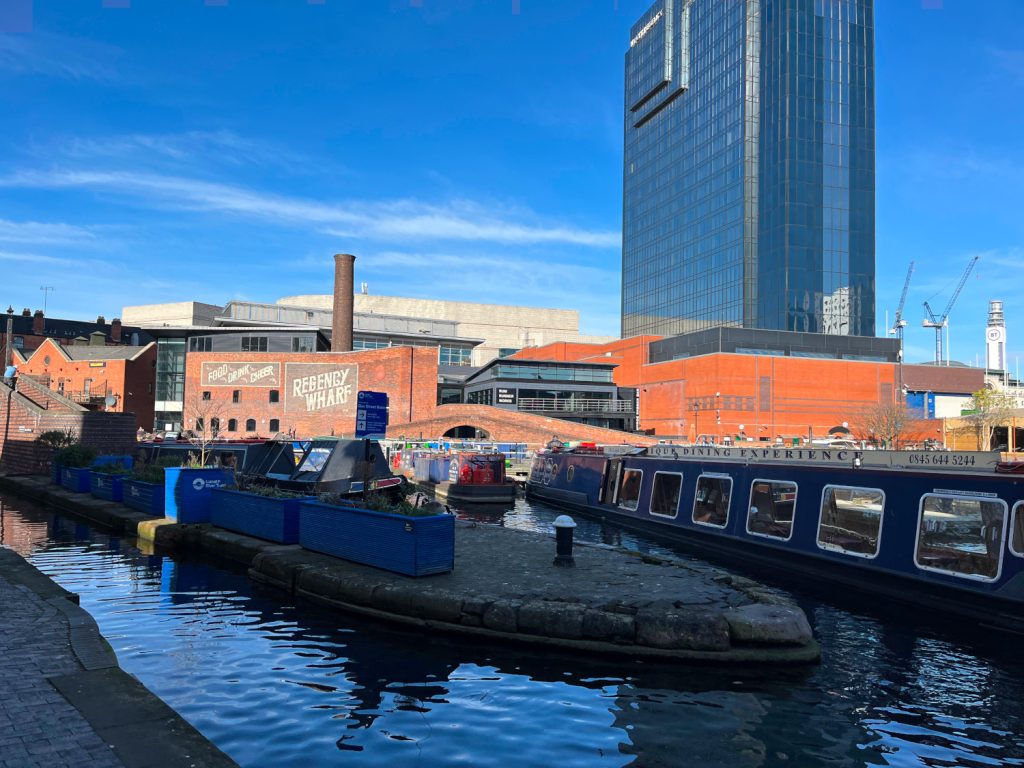
Several weeks later we received the news that we had progressed to the regional rounds. We were allocated to Birmingham (despite having secretly harboured hopes of a trip to Maastricht or Tbilisi). We were excited at the opportunity to present oral submissions after having committed so much time and effort to our written arguments. We began the process of condensing our arguments into oral submissions and ensuring we had an excellent grasp of all the relevant case law in this area. In what felt like no time at all we found ourselves travelling to Birmingham, squeezing in last minute revisions to our speeches and practicing on the train journey.
Sixteen teams took part in the Birmingham Regional round, travelling from the likes of Belgium, France and Switzerland. Following an academic programme we were informed the pleading timetable would be sent out before the end of the day. We waited anxiously until 10.30pm to hear whether we would be assigned the dreaded 9am Saturday morning slot. Finally, the email arrived: Ella and I were to plead at 3pm on Saturday afternoon, whilst Prune and Andre were to plead at 9am on Sunday morning.
We spent the few hours before our submissions completing extended run-throughs with the help of our coach. Ellen O’Neill had travelled with us and offered a unique insight into the competition having represented City in the 2021 HMPCC competition.
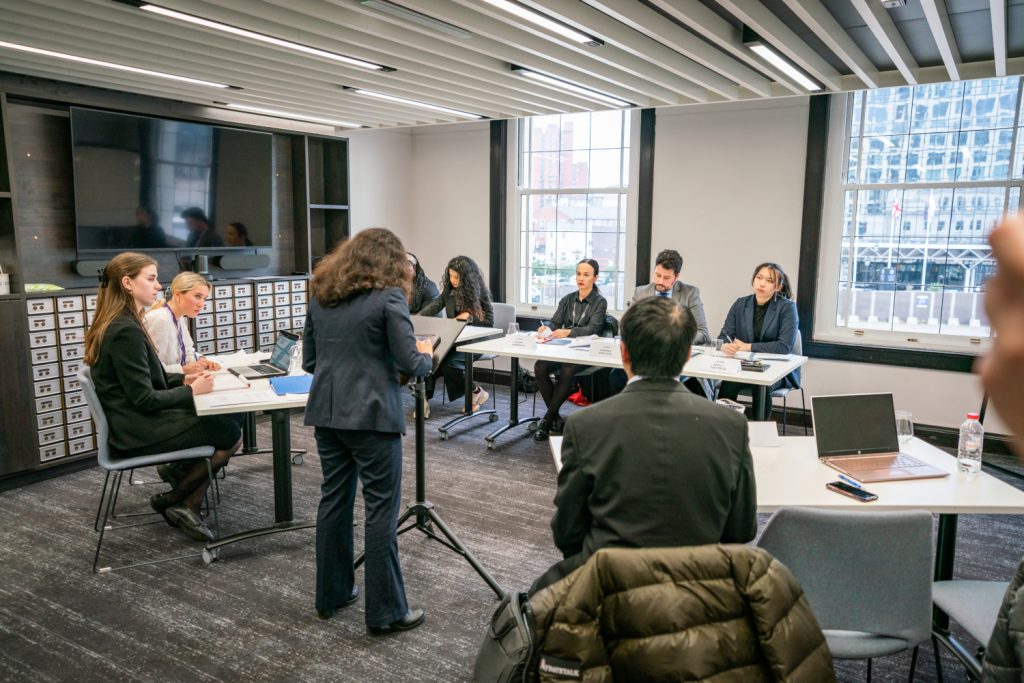
Each team had 35 minutes to present our oral submissions followed by an additional 5 minutes for rebuttal. Ella and I experienced some technical difficulties with our timing devices but managed to work well together to deliver what we felt to be a strong performance. Facing some tough judicial interventions also gave us fodder for improvement on our future oral submissions. Andre and Prune faced a much tougher pleading round as their judges were on a zoom connection. They were plagued with issues of technical difficulties, faulty wifi, and distracting external noises. Both, however, maintained their composure and dealt well with difficult questions probing the admissibility of their case and the technicalities of enforcing surrogacy agreements.
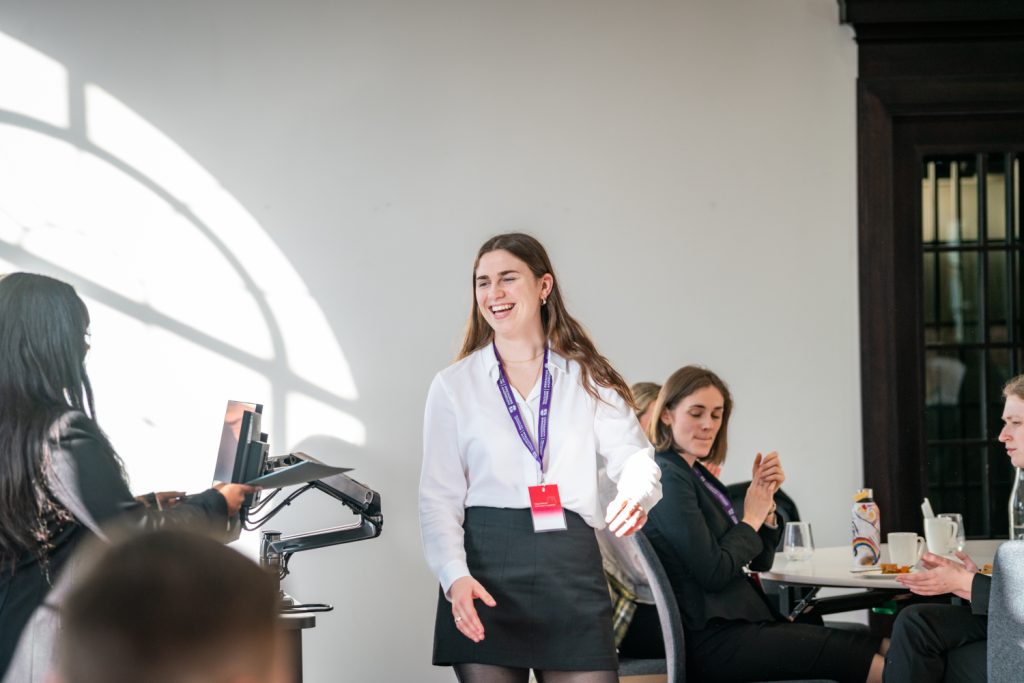
We celebrated the end of a challenging but thoroughly enjoyable weekend. The ELSA organising team in Birmingham treated us to a final night dinner and we enjoyed discussing the highs and lows of the competition and of studying law with other teams.
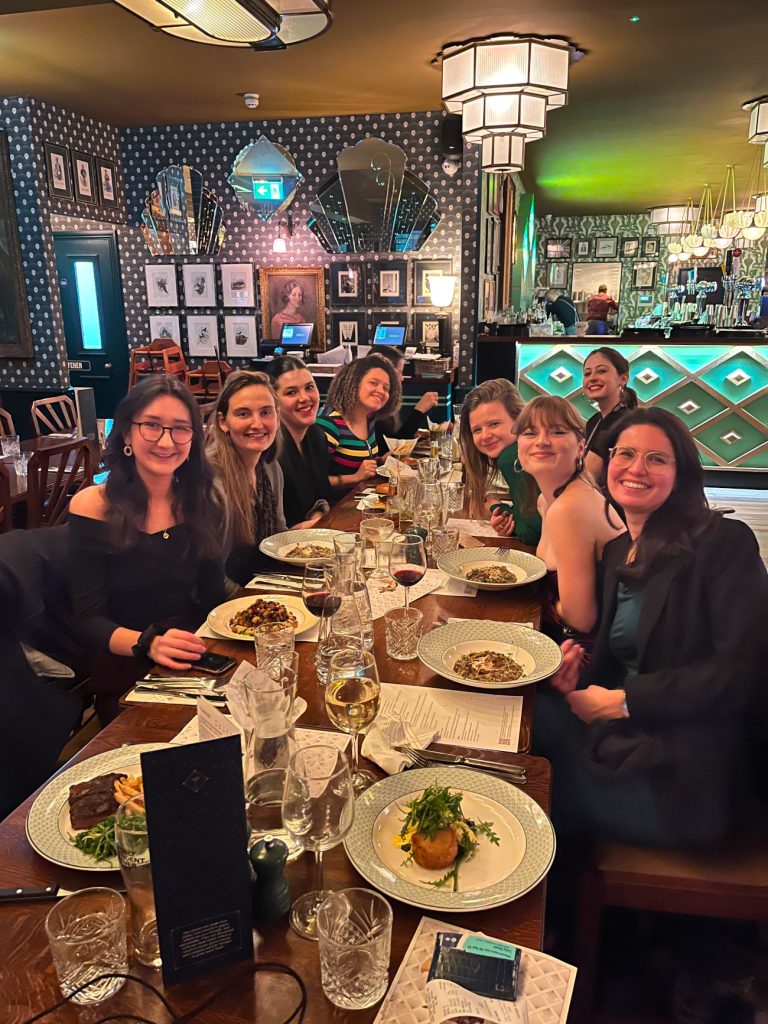
On 8th March we received the exciting news that we had progressed to the Final Oral Round having ranked 9th out of 53 teams. The Final Oral Round is the last stage of the competition, where the best 18 teams compete. The Final is organised annually in Strasbourg with the pleadings taking place at the Palais de l’Europe and the European Court of Human Rights.
Our weekend in Birmingham was a great success but would not have been possible without the support of certain individuals. The City team would like to thank Emily Allbon for all her help and support in guiding us through the competition, Stephen Hitchcox, for arranging transport and accommodation, and Ellen O’Neill from the 2021 City Team for her wise advice and dedicating her time to coaching our team.
Ed’s note: Thanks so much to Lucy for putting together this review of her team’s journey from moot beginners to qualifying for the finals in Strasbourg. We’ll all be rooting for them in May!

